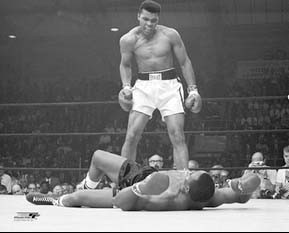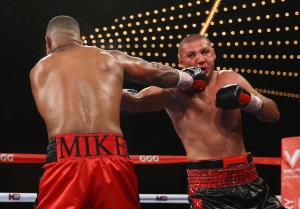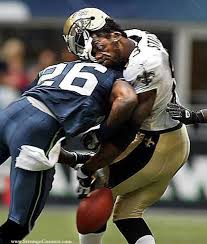The iconic images of Mohammed Ali standing over a knocked down Sonny Liston, Mike Tyson biting Evander Holyfield’s ear and 45 year old George Foreman knocking out Michael Moorer have afforded Boxing a place in western popular culture. Films like the Rocky series, Raging Bull and The Fighter have cemented its association with romantic tales of underdogs, champions and sacrifices made to reach the top of the sport. It’s these stories that allow boxing to appeal to a wider audience, and are crucial to its allure and financial success. Hearing Michael Buffer announce the combatants before unleashing his famous catchphrase builds tension and anticipation like no other sport can. It’s almost enough for someone who has grown up as a fan of the sport to forget that the aim of the competitor is to punch the opponent in the head or body in order to render them unconscious. The harder the opponent is knocked down, the higher the esteem the fighter is held in.

Mohammed Ali’s eventual defeat of Sonny Liston epitomises boxing’s romantic allure. Source: Sports Illustrated.
The question needs to be posed as to how a fan of combat sports can reconcile an appreciation and excitement for the sport of boxing whilst finding violence abhorrent outside of the squared circle. I’ve long been fascinated by boxing, and have spent many a very late Saturday night/early Sunday morning watching Mayweather, Pacquiao, Khan and others duke it out. I was there when Carl Froch overcame the much-fancied, but ultimately overrated Lucien Bute to regain a portion of the super-middleweight title, amid the most electric of sporting atmospheres. I was also at Wembley stadium in May to see Froch knock George Groves senseless with a vicious right hand. I’ve been contemplating the morality of boxing for a while, but the bloodlust of the crowd at Wembley in particular has led to further contemplation.
Calls to ban boxing last gained traction in the 1990s, as a string of high-profile fights ended with tragic consequences. After Chris Eubank caused Michael Watson permanent brain damage in 1991 and Bradley Stone died in a super-bantamweight British title fight in 1994 calls to ban boxing gained momentum. In 1995, Derek Whyte wrote in The Independent of a “savage night of violence” in Glasgow as another young British fighter, Bantamweight James Murray died fighting for the British title. The article reads like a eulogy for boxing amid a realisation that the savage action in the ring (and in this case, violence outside of the ring) during that fight were not the hallmarks of a civilised society. However, since Paul Ingle’s career ended with several weeks in intensive care in December 2000, British boxing success, at the Olympics in particular, has helped quelled high profile calls for a ban. The current absence of a public debate on the issue is also attributable to the fact that incidents such as the near death of Heavyweight contender Magomed Abdusalamov in November 2013 happened to not have occurred in high profile bouts.

Abdusalamov (right) was brought into a medically induced coma shortly after the fight with Mike Perez (left). His recovery has been slow and he has suffered permanent brain damage. Source: New York Daily News.
The medical argument for a cessation of the sport is compelling, if not blatantly obvious. The most common long-term condition related to repeated blows to the head is chronic traumatic encephalopathy (CTE). The condition, known colloquially as “punch drunk syndrome”, can cause memory loss, severe personality changes and has been linked to the onset of dementia. Even if a fighter avoids being violently knocked out during their career, the long-term effects are evident, and have to weigh heavy on the heart of boxing fans.
As evidence in favour of a ban is strong, the defence of boxing is weak. Other sports are violent too; American football, Ice Hockey and Rugby are often cited examples, but deliberately intending to physically harm your opponent is not the sole purpose of these sports and attempts to do so within these sports is being increasingly clamped down upon. Arguments that claim boxing’s ok because it’s always been around or that it’s natural for a society to want to see physical specimens compete do not stand up to scrutiny. Bear bating and cock fighting were around for centuries before they were no longer tolerated, and gladiators used to fight to the death to prove their prowess. Fighters no longer go out to kill each other, but it can be an unintended consequence.

The NFL has completely outlawed helmet to helmet contact, as concern about the long-term effects of concussion become known. Source: nfl.com
As Froch delivered his devastating right hand on May 31st, my concern was immediately for the wellbeing of his opponent as Groves lay motionless with one leg bent awkwardly underneath him. The barbarism evident at Wembley, and among many boxing audiences generally, is a modern version of the amphitheatre crowds of Ancient Rome, cheering their favourite with little concern for the stricken foe. That said, I’m still a boxing fan; the dedication, skill and fitness needed in the sport is tremendous. The tactics (and politics) involved at the top level make it a truly intriguing sport to follow. Fans however, need to be aware of its precarious position within the collective moral compass of the 21st Century and perhaps accept that the sport may not survive another string of tragedies like those in the 1990s.
The main reason for not banning boxing is simple. From prohibition in the USA to the ban on women playing football on League grounds to the current ban on gambling in India banning things that human beings want to do only leads to one thing.. The activity is driven underground. Boxing would still continue if it was banned – only in unregulated underground shows. They would have no safety measures and so the risk to competitors would be even higher.
I think the point is that human beings probably will not want to do it in future, the same way we no longer have duels or gladiatorial contests. Underground boxing already exists and would likely increase in popularity if a formal ban were in place- but a lot of boxing’s allure would be gone; romance, fame and and the millions of dollars. If a ban happens, it will happen at a time when the moral zeitgeist turns against boxing, as it has against fox hunting and other brutal practices. I’m not calling for a ban here, but saying that when/if it does happen I’ll accept it as being justified.